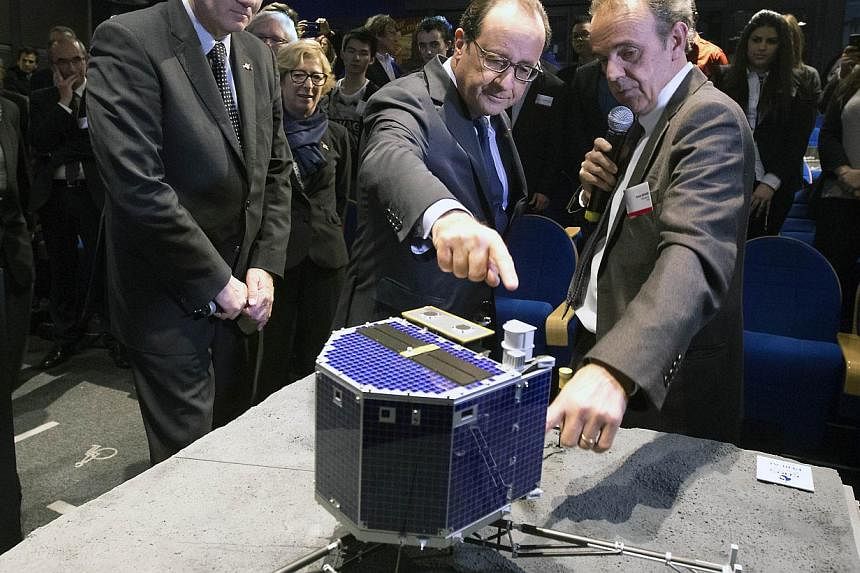PARIS (AFP) - A probe that made the first landing on a comet but fell silent when its battery ran down may revive with sunlight in March, France's space chief said on Monday.
"The Philae saga is going to continue," Dr Jean-Yves Le Gall, head of the National Centre for Space Studies (CNES), told journalists in Paris, referring to the robot lab perched on the dusty iceball zipping through space.
The 100kg European probe landed on Comet 67P/Churyumov-Gerasimenko on Nov 12 after a 10-year trek piggybacking on its mother ship, Rosetta.
But the operation did not go smoothly. Philae bounced twice on the icy surface before settling at an angle in the shadow of a cliff.
It had enough power in an onboard battery for around 60 hours of experiments, but not enough light to sustain its solar panels and carry on working.
On Nov 15, out of juice, the lander went into standby mode.
But the situation could change as Comet "C-G" draws closer to the Sun, Dr Le Gall said.
"We hope that from March, the sunlight will help the robot to recharge its batteries and resume its scientific work," he said.
Scientists resorted to every trick to tease data from Philae's 10 instruments before the shutdown.
But a great bonus would be if the lander can monitor the comet when it reaches its closest and hottest point to the Sun.
"We are hoping to get real-time experience at perihelion, on Aug 13," said Dr Le Gall. "I am sure we'll see things that we never imagined."
Knowing exactly where Philae is would help mission managers calculate its chances of resuming duties.
"We have a rough idea of where it is, but we still haven't seen it," Mr Marc Pircher, head of the Toulouse space centre, said explaining that Rosetta's Osiris camera had been tasked for the search.

